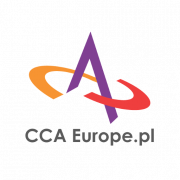Lean scaling in software development
Finding the right talents for the project is one of the biggest challenges the growing IT companies face today. A rapid increase in employment causes a natural productivity drop in the expanded organization. How about scaling- smart?
In the world of shared economy, executing all IT tasks with just in-house resources is neither quite possible nor necessary. How then to increase your teams’ capacity? And how to support the overall business goals, financial results and company growth? The answer: scale in the spirit of lean, for improved economy and organizational agility.
Small is beautiful but still small
Software companies such as CCA Europe are based on highly qualified teams of developers, analysts and experienced managers. And it’s not just about numbers. Small teams of qualified developers often have more capacity to deliver innovative and complex applications on time and within the budget, maintaining high quality.
As the man behind the term ‘small is beautiful’, E.F. Schumacher, put it, small teams are a key factor of success and innovation in software development. And this is exactly how we have developed our unique skills in the banking IT sector. However, the current IT market challenges require still more specializations.
I believe these days software companies are a bit like film studios: we need to deliver various finished products (in our case software) regularly. That is why in terms of organization, technology companies increasingly mimic Hollywood film production. Our projects require a joint effort of high-class specialists, experts in respective fields.
At CCA Europe, we gladly reach out for the support of domain experts. Outsourcing allows us to quickly scale employment up or down, depending on project requirements. Apart from central bank systems, we also deliver front-end applications. With these tools, our clients can listen to the voice of their customers and implement the expected changes.
A company open for exchange
IT companies are increasingly less like forts, and more like airports. Our employees are sent off to different projects, and new talents arrive to join our team. However, this type of exchange requires high organizational maturity.
First of all, the key to success is the right procedures. If they are effective, the leased employee can quickly adapt to your client’s team, and be operative from day one. Secondly, organizational culture is essential. When building such a “flexible” team, employees should be ready for constant change. Both the company policy and work organization ought also align to this model.
In the recruitment and onboarding of new CCA Europe employees, we strongly emphasize the skills that support the scalability of the organization. Our employees must be able to operate in an open model, i.e. to blend in with the structures of client organizations efficiently, and we encourage such talents to work with us.
Just the other day, one of our partners praised one of our testers, emphasizing not only her technical skills but also her adaptability. “Although she was not a permanent member of the team, the tester was able to perfectly find herself in the new environment and seamlessly blend with the ongoing project pace, according to the applied Agile methodology. In addition, she demonstrated great diligence and focus during testing. She openly discussed her doubts and shared her comments with the remote team, which demonstrates high communication skills,” the client wrote.
Lean scaling: the future of IT?
For the management of a software development organization, scaling is the greatest challenge. However, the possibility to temporarily increase one’s human resources opens access to a new talent pool, and thus increases ROI and productivity. As a result, partner outsourcing works great when you need to strengthen the team with specific skills or as support in larger projects. The exchange allows not only optimizing costs but also proving the company’s culture and organizational maturity.
Since last year, we have been a member of the Software Development Association Poland (SoDA). It is a joint venture of over 90 companies, with a total of over 9,000 developers on board, which supports and fosters the scalable operating model. SoDA members are special forces. It is the only organization in Poland that runs hundreds of projects, with thousands of challenges, at the same time. The organization was created in the spirit of agility so that companies from the IT industry could support each other, share knowledge and experience, as well as join hands to deliver larger projects.
As Mariusz Walczak, Head of Marketing Committee at SoDA admitted, the demanding IT market made it difficult to engage qualified employees quickly. On the other hand, hardly ever are all SoDA organizations involved in full capacity at the same time. When some companies have needs, and others have free resources, all you have to do is match them.
Lean scaling is not simple. It can’t be done helter-skelter because the process requires continuous improvement and learning from one’s mistakes. On the one hand, the process is necessary, but on the other hand, improvisation and adaptation should also be allowed. Another key element is strategic partnerships in different configurations, which CCA Europe cherishes in SoDA. Access to resources that provide both the scale and the strength of diversity is a way to achieve increased productivity and improved quality in the current business reality. Quoting Mariusz Walczak from SoDA, “it is better to cooperate than to compete”.

